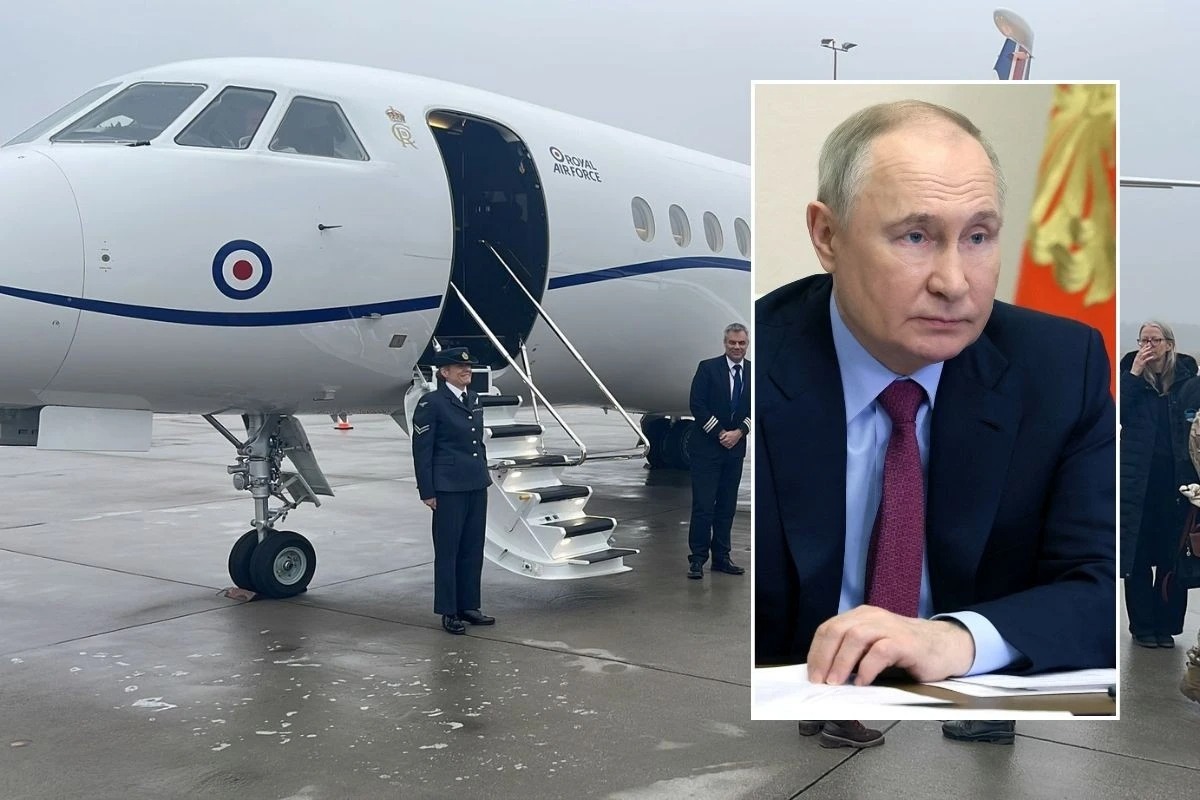As a government source and accompanying journalists reported on Thursday, Russia is suspected of disrupting the satellite signal on an aircraft that Defense Minister Grant Shapps utilized during his return journey from Poland to Britain.
The interference with the GPS signal allegedly occurred for approximately 30 minutes while the aircraft was near Russia’s Baltic enclave of Kaliningrad.
Mobile phones onboard could not connect to the internet, prompting the aircraft to resort to alternative methods for determining its location.
Despite inquiries, the Russian defense ministry remained unresponsive to requests for comment. In response to the incident, a Prime Minister Rishi Sunak spokesperson acknowledged the occurrence on Wednesday but downplayed its significance, characterizing it as “not unusual.”
UK Defense Secretary’s Aircraft (Credits: X.com)
The spokesperson clarified that during the return trip from Poland, the aircraft transporting the Defense Secretary and his delegation encountered a temporary GPS disruption near Kaliningrad.
The spokesperson reassured that the safety of the aircraft was not compromised and highlighted that such occurrences of GPS disruption near Kaliningrad, being Russian territory, are not uncommon.
This incident raises concerns about Russia’s potential interference with navigation systems, especially in sensitive areas. While the disruption lasted only 30 minutes and did not jeopardize the safety of the aircraft, it underscores the need for vigilance in monitoring such activities.
The Russian defense ministry’s lack of response adds to the ambiguity surrounding the incident, leaving questions unanswered about the motive behind the GPS jamming.
The timing of the disruption, occurring during the defense minister’s return from Poland, a region experiencing heightened tensions due to Russia’s invasion of Ukraine, adds a geopolitical dimension to the incident.
UK Defense Secretary’s Aircraft (Credits: Sky News)
It highlights Western nations’ ongoing challenges in managing relations with Russia amid escalating conflicts and regional instability.
The incident underscores the importance of robust defense and security measures to safeguard against potential threats, including cyber and electronic warfare tactics employed by hostile actors. It also highlights the need for international cooperation and coordination in addressing such challenges effectively.
In light of this incident, there may be calls for increased scrutiny of Russia’s activities in the Baltic region and broader efforts to enhance defense capabilities and resilience against emerging threats.
While the GPS disruption experienced by the aircraft may have been temporary and relatively benign, it serves as a reminder of the complex geopolitical dynamics at play and the need for continued vigilance in safeguarding national security interests.
